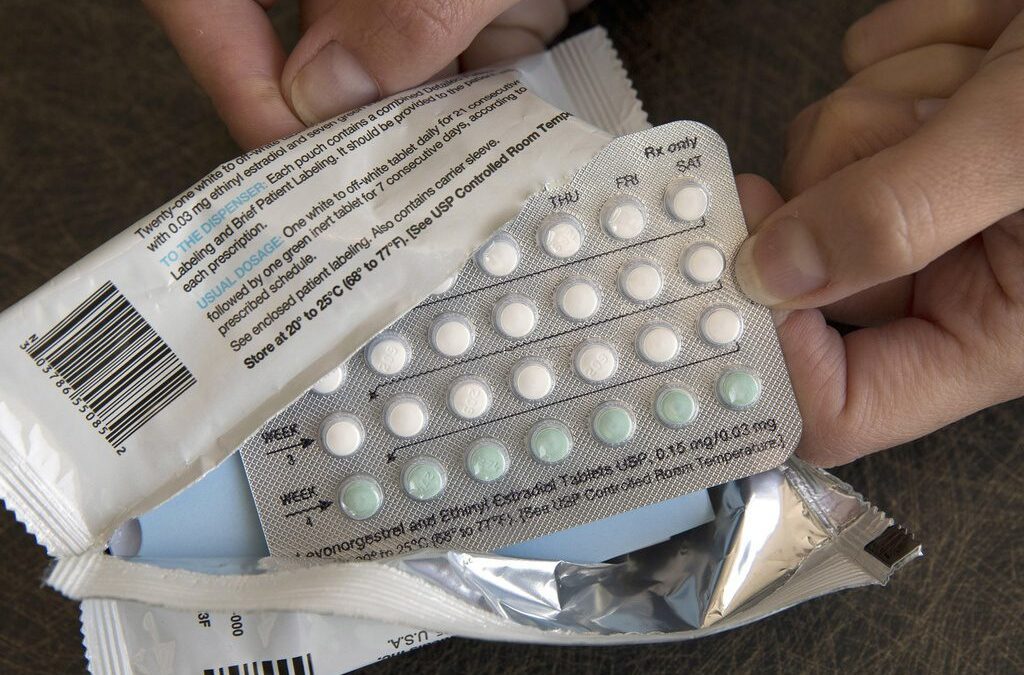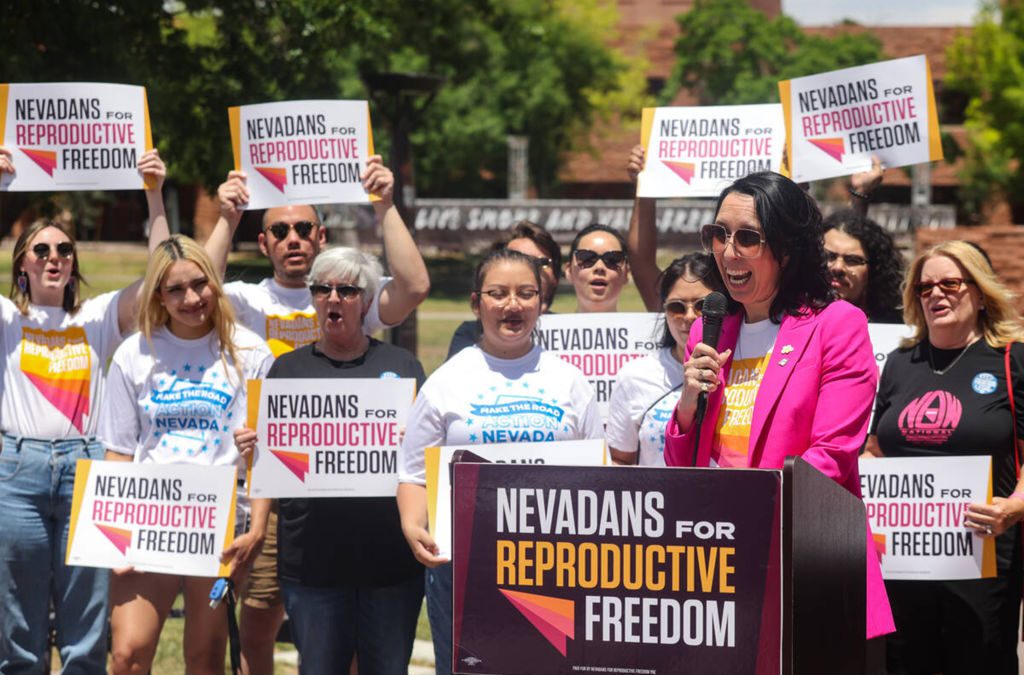
Justice Brett Kavanaugh, writing on behalf of the Supreme Court, wrote that while the plaintiffs did not have standing to sue over the FDA's regulation of mifepristone, “it is not clear that no one else would have standing to challenge the FDA’s relaxed regulation of mifepristone.” (AP Photo/Amanda Andrade-Rhoades)
Justice Brett Kavanaugh, writing on behalf of the Supreme Court, wrote that while the plaintiffs did not have standing to sue over the FDA’s regulation of mifepristone, “it is not clear that no one else would have standing to challenge the FDA’s relaxed regulation of mifepristone.”
The United States Supreme Court on Thursday unanimously rejected a challenge to the abortion pill mifepristone, meaning the drug, which is used in more than half of abortions nationwide along with another drug, misoprostol, will remain widely available in states where abortion is legal.
The case, Alliance for Hippocratic Medicine v. US Food and Drug Administration, was the first time the right-wing Court has heard a case relating to abortion access since its decision to overturn Roe v. Wade. The lawsuit was filed by a group of anti-abortion organizations and doctors who sought to reverse the FDA’s 2000 approval of mifepristone—or at least limit access to the drug.
Writing for the majority, Justice Brett Kavanaugh, wrote that while the plaintiffs have “sincere legal, moral, ideological, and policy objections to elective abortion and to the FDA’s relaxed regulation of mifepristone,” that does not mean they have the legal standing to file a federal case.
In the legal system, parties must prove standing, or in other words, that they’re being harmed by the law or action they’re suing over. Kavanaugh wrote that the anti-abortion doctors behind the lawsuit failed to show they had suffered any injury as a result of the FDA’s approval of the drug, because they do not use or prescribe mifepristone and the FDA’s regulations of the drug does not impact them.
This means that “the federal courts are the wrong forum for addressing the plaintiffs’ concerns about the FDA’s actions,” Kavanaugh wrote.
But notably, he also wrote that “it is not clear that no one else would have standing to challenge the FDA’s relaxed regulation of mifepristone,” leaving the door open to future challenges to mifepristone.
Reproductive rights advocates and Democratic lawmakers celebrated Thursday’s ruling, but also warned that the fight over abortion access is far from over.
“This ruling does not change the fact that millions of American women are today living under cruel abortion bans because of Donald Trump,” Vice President Kamala Harris said in a statement. “Nor does this ruling change the threat to medication abortion. We know the Trump team has a plan to try to end access to medication abortion and carry out a Trump abortion ban in all 50 states, with or without Congress, if they get the chance. We cannot and will not let that happen.”
Haydee Morales, interim president of the National Institute for Reproductive Health said that this case “should never have made it to the Supreme Court in the first place.”
“Anti-abortion operatives brought this case with one goal in mind – to ban medication abortion and they failed,” she said. “This case was a near miss for the science and medicine community and it won’t be the last attack. This should be a warning to all of us: if anti-abortion operatives came this close to undermining long-standing approvals for mifepristone, what will come next?”
How we got here
Access to mifepristone was called into question last year, when US District Judge and Trump appointee Matthew Kacsmaryk sided with the plaintiffs who filed this lawsuit seeking to reverse the FDA’s 2000 approval of mifepristone.
Kacsmaryk—a far-right judge with a history of anti-abortion views—ordered a complete hold of the federal approval of the drug, overruling decades of scientific approval precedents and hundreds of studies documenting the drug’s safety in abortion care.
A federal appeals court partially blocked Kacsmaryk’s decision, maintaining mifepristone’s availability, but limited access in ways that could harm patients seeking abortion care.
The Supreme Court then stepped in and agreed to hear the case and ultimately overruled Kacsmaryk on Thursday, maintaining the status quo.
Both health clinics and doctors said that if mifepristone was pulled from the market, they would’ve been forced to prescribe just misoprostol, which has a lower rate of effectiveness. Legal experts also said that this ruling could have “upended decades of precedent” and could have “set the stage for political groups to overturn other FDA approvals of controversial drugs and vaccines.”
State-level attacks on abortion rights
Despite Thursday’s ruling, attacks on reproductive health are continuing in full force, and mifepristone still only remains available in states where abortion is legal. When the Supreme Court voted to overturn Roe v. Wade two years ago, it led to a wave of new abortion restrictions across the country.
In Nevada, abortion is legal until 24 weeks of pregnancy and reproductive rights advocates have launched an effort to enshrine abortion rights under the state constitution via a ballot measure this year.
The presidential election could decide the fate of mifepristone
While mifepristone is safe for now, advocates and Democrats are warning that the November presidential election could determine the future of the medication.
Conservative activists have crafted an expansive blueprint that lays out in detail how they intend to leverage virtually every arm, tool, and agency of the federal government to attack abortion access—including by banning and criminalizing access to abortion medication.
That plan—which is more than 900 pages long—was put together by allies of former President Donald Trump and includes ways to make abortion inaccessible without actually passing any new laws at all.
The theory: Trump could replace nonpolitical staff in government agencies with right-wing loyalists who exploit the power of these agencies to erode abortion rights. He could, for example, hire staff at the US Food and Drug Administration who reject medical science and reverse the agency’s approval of all abortion medication.
Project 2025, as the plan has been called, also calls for allowing emergency rooms to refuse to perform life-saving abortions, reversing HIPAA privacy protections for patients getting abortions, and directing the US Department of Justice to start enforcing the Comstock Act of 1873. The 150-year-old law bans the mailing of “anything designed, adapted, or intended for producing abortion,” which would include not only abortion pills, but potentially medical instruments.
Under such an interpretation of the Comstock Act, any clinic that gets supplies shipped across state lines could be found in violation of the law, even those in states that have protections for abortion in the state constitution.
In other words: Republicans could use Comstock to target abortion providers in all 50 states—effectively wielding the law to implement a national abortion ban of sorts. They could even use the law to prosecute women who possess abortion pills.

New study finds that air pollution could be threatening the success of IVF treatment
Researchers looked at the air pollution levels while the donor eggs were developing and the 72 days when the sperm was developing and found a link...

Misinformation about birth control is rampant on social media, alarming doctors
Doctors are concerned that misinformation about birth control might make some women get off it at a time when there are fewer options available for...

Crisis pregnancy centers give questionable advice on unproven ‘abortion pill reversal,’ study finds
A new study published in JAMA Internal Medicine found that 30% of these anti-abortion ‘fake clinics’ promote "abortion pill reversal," a treatment...

Opinion: Comstock is Trump and the GOP’s backdoor to a national abortion ban
In an op-ed, Kate Kelly highlights how the 1873 Comstock Act, passed at the behest of Anthony Comstock — a man so obsessed with abortion providers,...

Opinion: What’s at stake for Latinos in the election–and why voting matters
In just two weeks, voters across the country will have an opportunity to decide what future and vision we have for this country. As executive...

Opinion: The moral imperative to vote for reproductive freedom and against the vision of Project 2025
When it comes to securing the fundamental right to make our own reproductive health care decisions, it’s not always easy to see the connection to...



